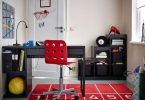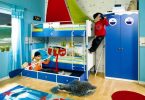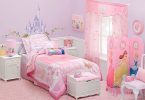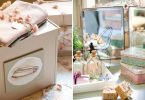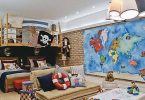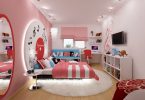Many have heard about Maria Montessori and her upbringing methods, but not everyone knows that according to these principles, parents today can decorate the interior of a children’s room. It was the idea of creating a developing environment surrounding a baby from birth that formed the basis of the commandments of the famous teacher.
Distinctive features of a Montessori nursery
We all know that the developing environment is one of the key factors in the harmonious development of a child. At an early age, it is especially important that the baby feels safe enough, but at the same time free and natural. And here it makes sense to listen to the principles of Maria Montessori, a teacher who praised respect for the independence of the child. Of course, if you delve deeper into the Montessori methodology, you will find out that special Montessori gardens and schools are subject to the strictest requirements: they require special materials, toys and manuals. However, the general rules for organizing the environment with some adaptation can also be used to build the space at home, creating a cozy interior that will create a microclimate for the healthy development of the child..
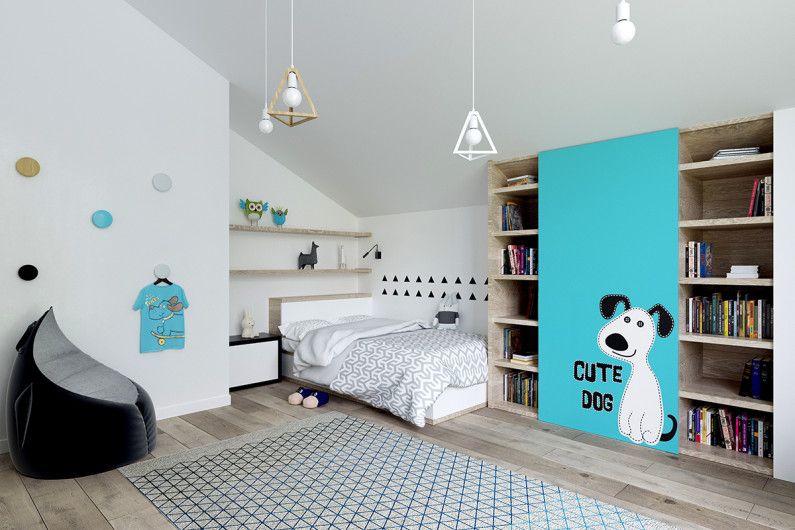
How to decorate a nursery
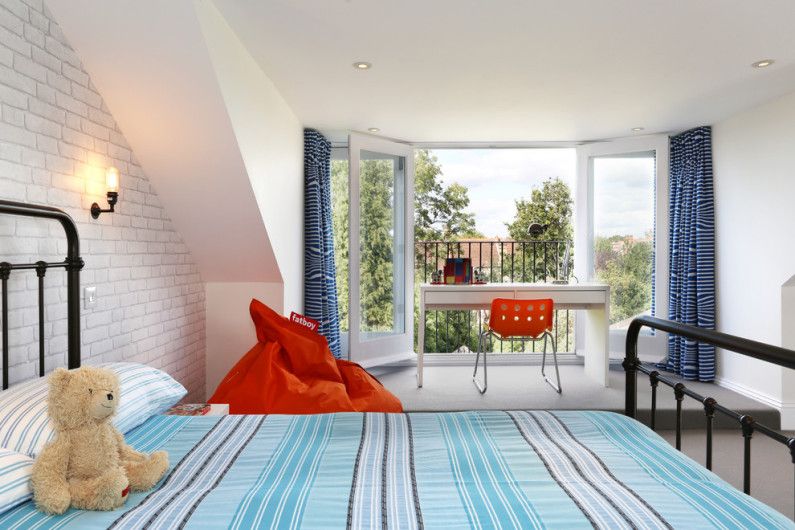
How to decorate a nursery
We must give the child an environment in which he can be independent: low shelves with drawers that he can open himself, common facilities that are available to the child, a small bed in which he will sleep and at any time rise himself, we must give he has such an environment in which he can live and play, and then we will see how the child grows up playing, becoming independent and independent from the constant participation of parents in his every step
Maria Montessori
A Montessori nursery is a creative environment filled with light, comfort, living natural colors and natural materials.
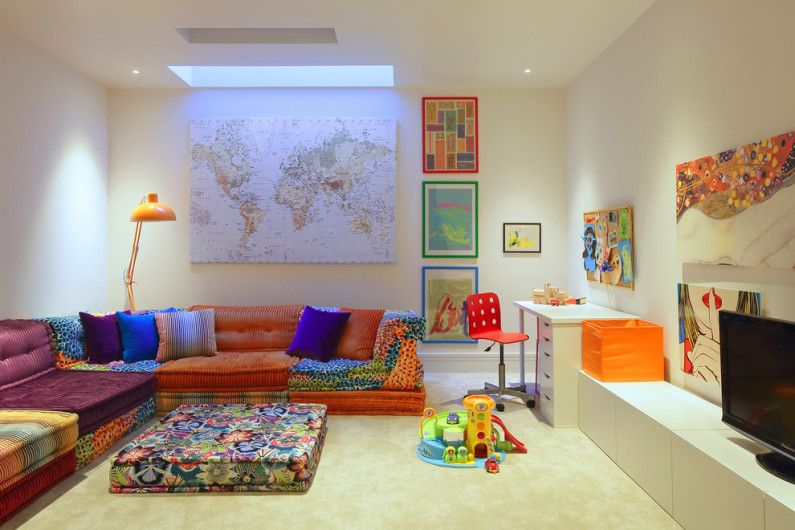
How to decorate a nursery
The most attractive Montessori interior is that it encourages simplicity. The nursery should be without an excess of toys, bulky furniture, unnecessary decor details. It is a simple, straightforward environment that will serve your child in their daily life, making everything they need accessible. I think we should all use simpler spaces, live in an environment of minimalism and functional interiors..
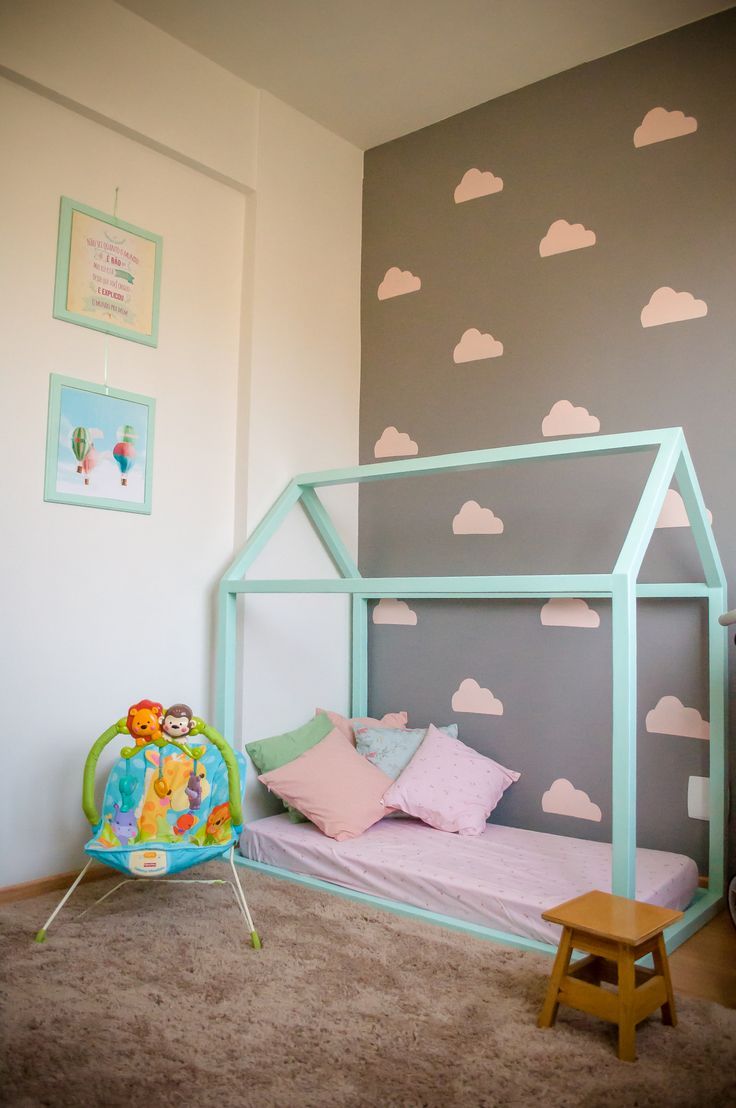
How to decorate a nursery
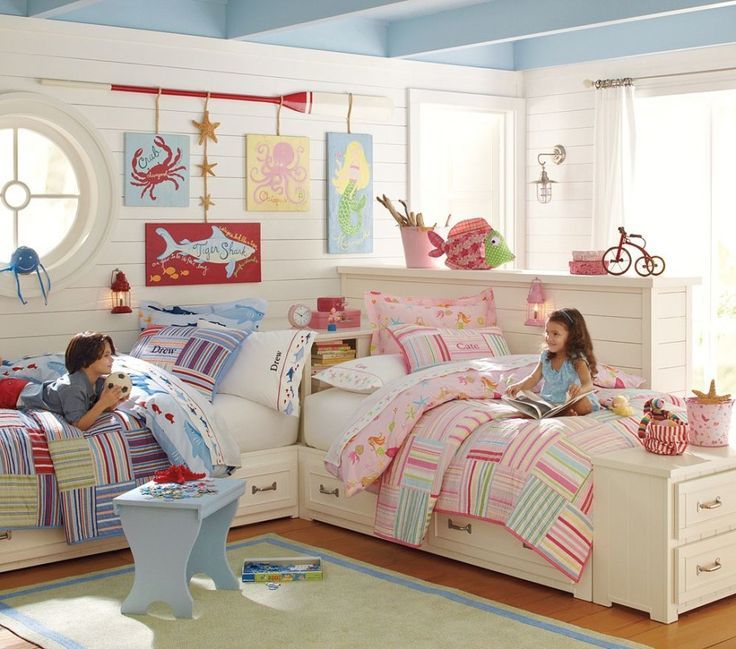
How to decorate a nursery
Features for the interior of children’s Montessori:
The first – this is a low cot. For a very young child, a mattress that can be placed directly on the floor or a very low bed is suitable. The kid will be able to see the world around him without the bars of an ordinary crib. And as soon as he learns to crawl, he will be able to independently climb onto the bed and get off it..
Second – it is the presence of a mirror of an accessible height in the child’s field of vision. Ever noticed that toddlers can spend an incredible amount of time kissing their own displays, this is not an early sign of narcissism, it is part of healthy development and manifestation «mirror stage». Admiring yourself, your little one learns facial expressions, movements, the environment .
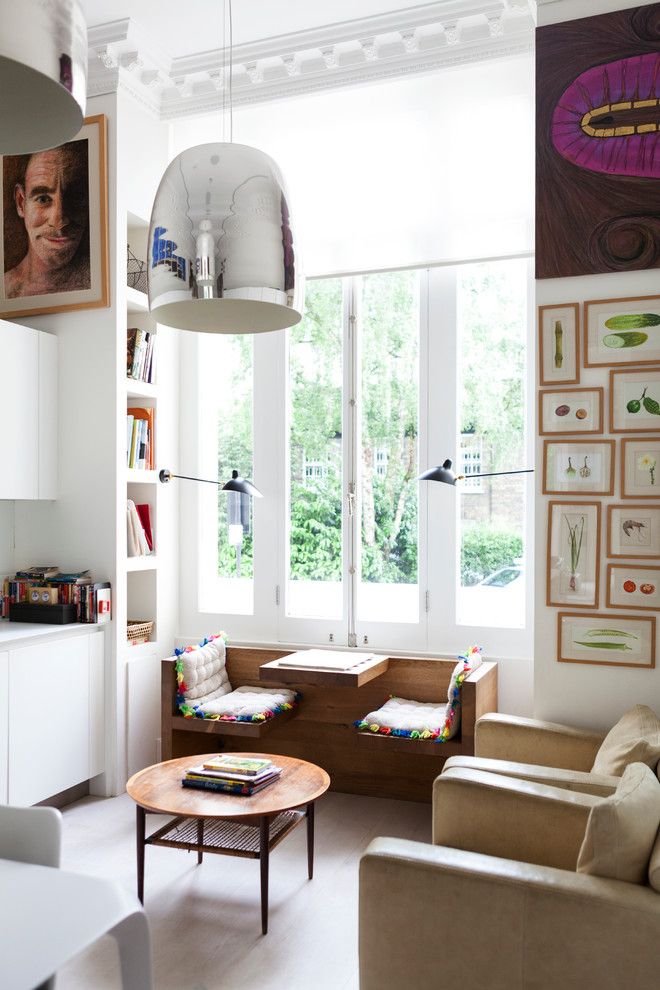
How to decorate a nursery
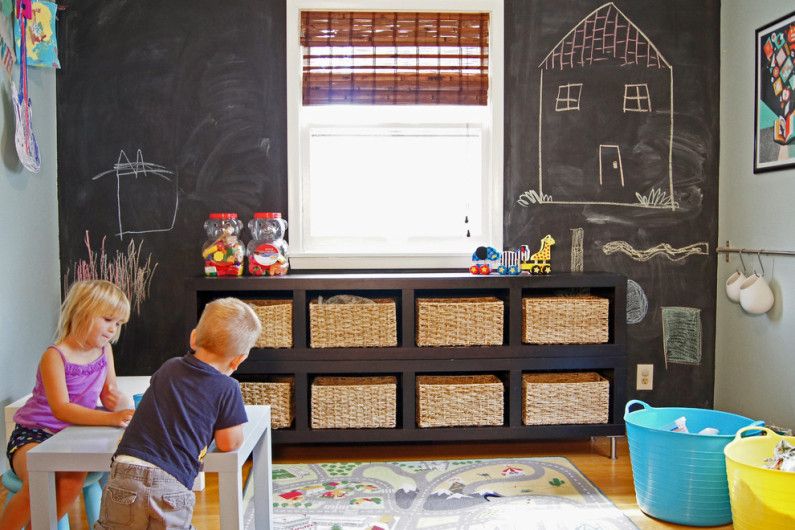
How to decorate a nursery
Shelving by Montessori
An open low rack is an integral part of a Montessori nursery. Using it in the arrangement of the room, parents give the child the opportunity to choose their own occupation, and provide free access to toys. You don’t need to give a lot of toys at once. Better to change them from time to time.
The open shelving makes it possible to instill in the child a love of cleanliness and order
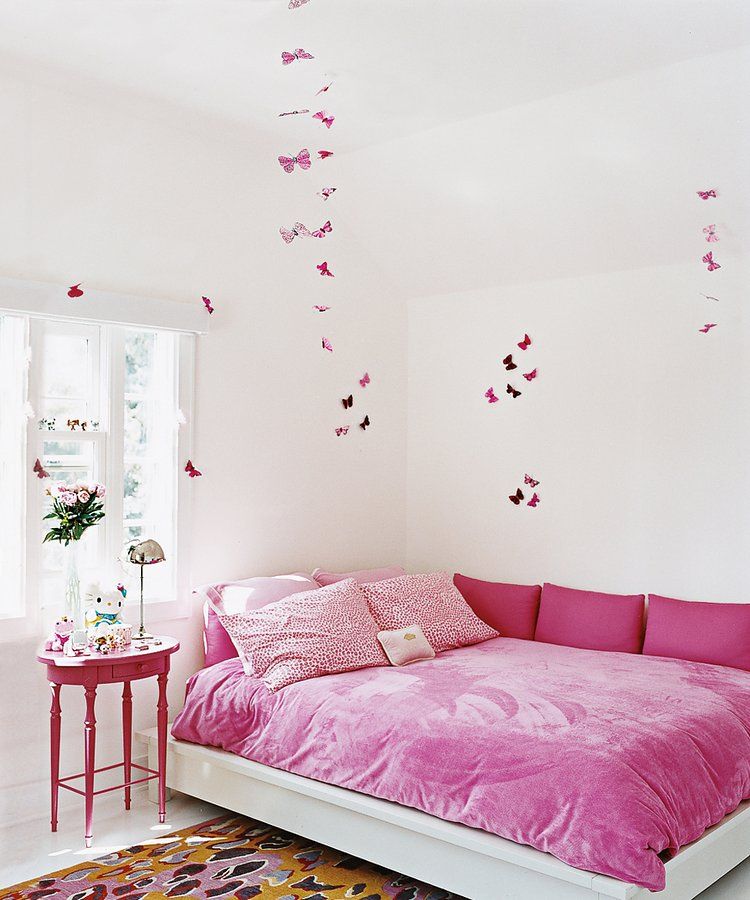
How to decorate a nursery
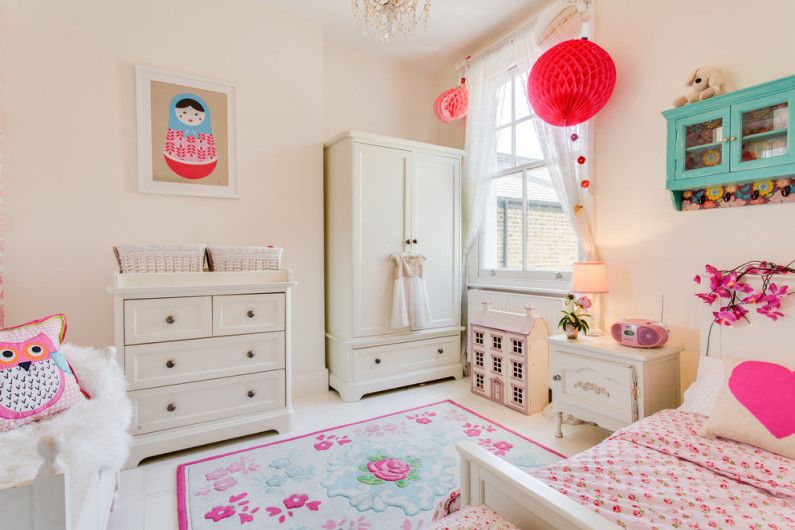
How to decorate a nursery
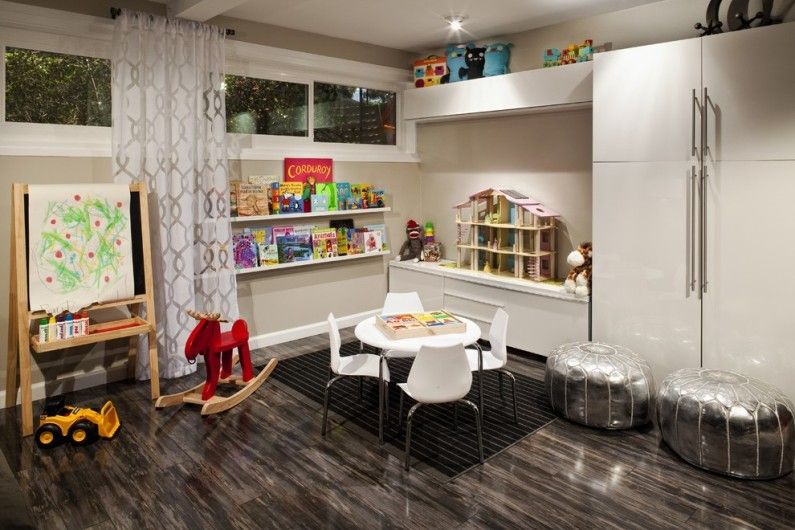
How to decorate a nursery
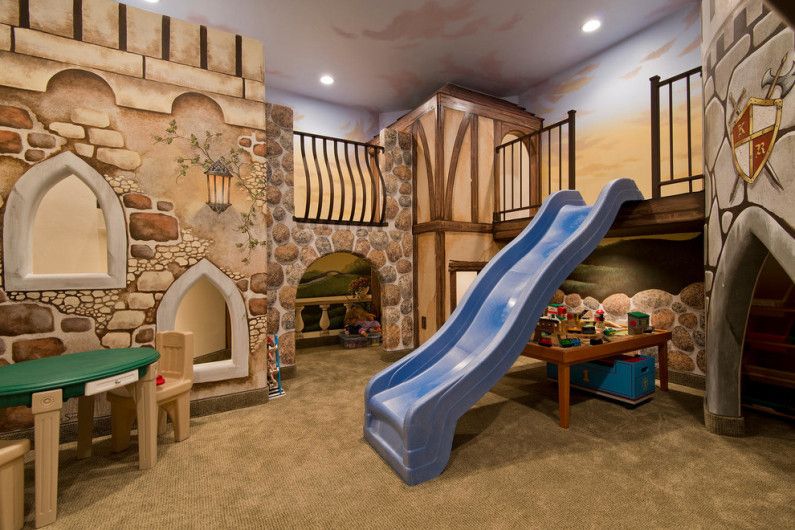
How to decorate a nursery
Play furniture
You also need furniture for the child’s height. Once your child learns to sit, you can place a small table and chair for the child’s height. Encourage your child to be creative or have a snack at the table. Try to include more tactile surfaces. Don’t underestimate the sense of touch – kids learn a ton of useful information by exploring different textures and materials. Soft blankets, cork rugs, wood blocks and knitted blankets enrich the baby’s experience in the environment. Don’t be afraid to expand your child’s world with a variety of textures.
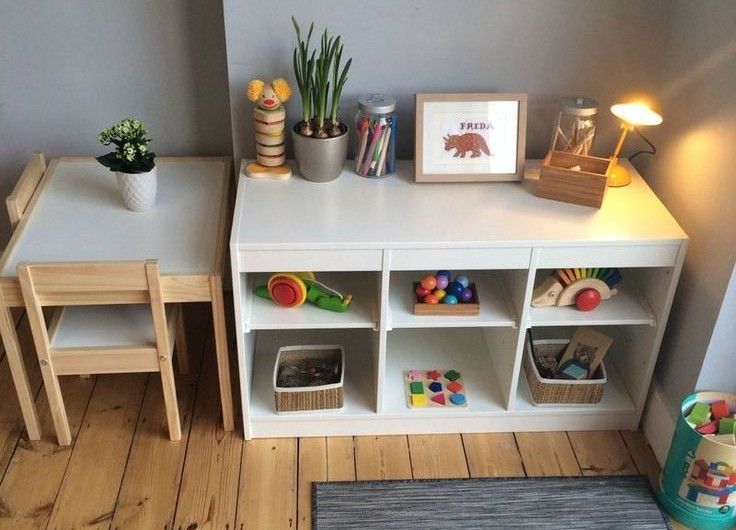
How to decorate a nursery
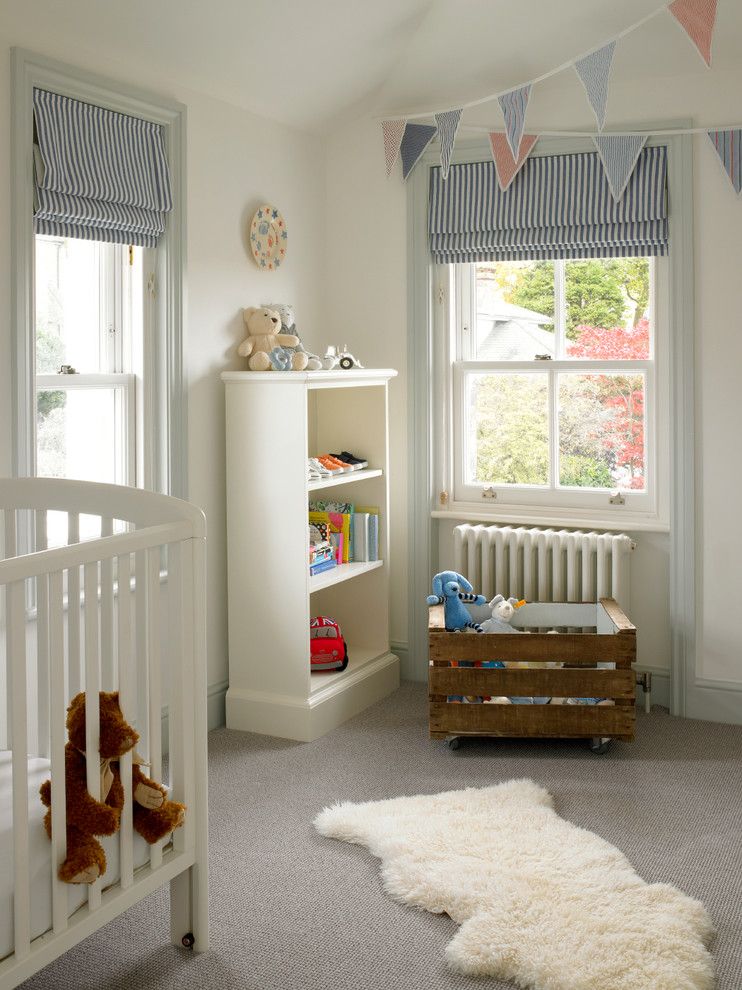
How to decorate a nursery
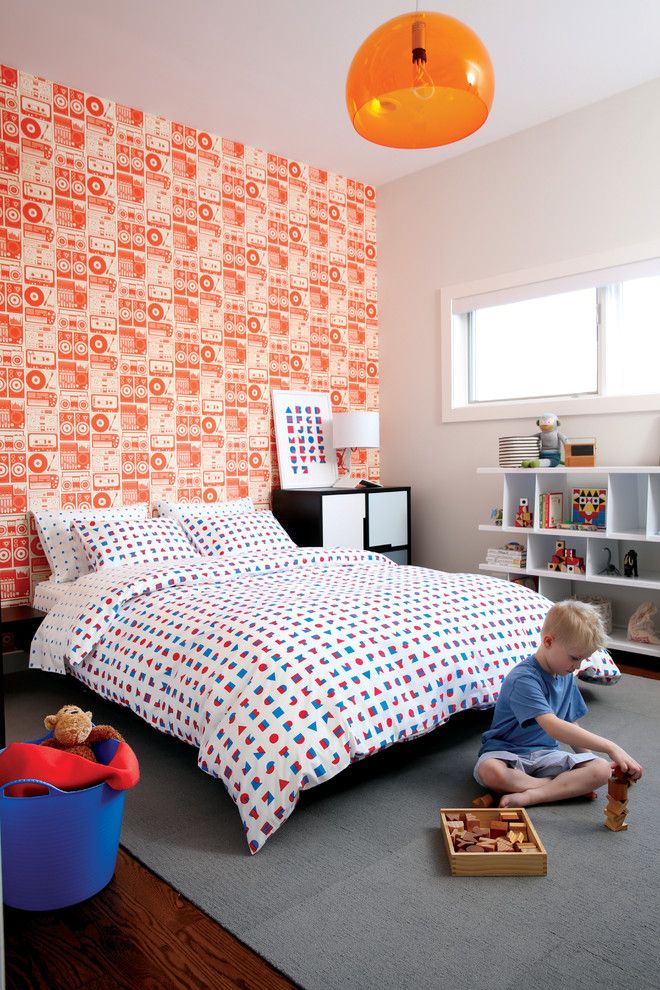
How to decorate a nursery
Child’s activity area
Babies really need an area in the room where they can move freely and play, the so-called zone of creativity and activity. As a rule, they place it in the center of the room, marking it with a warm and soft small carpet. When the baby grows up and becomes more independent, a table and a chair must be placed in the activity zone.
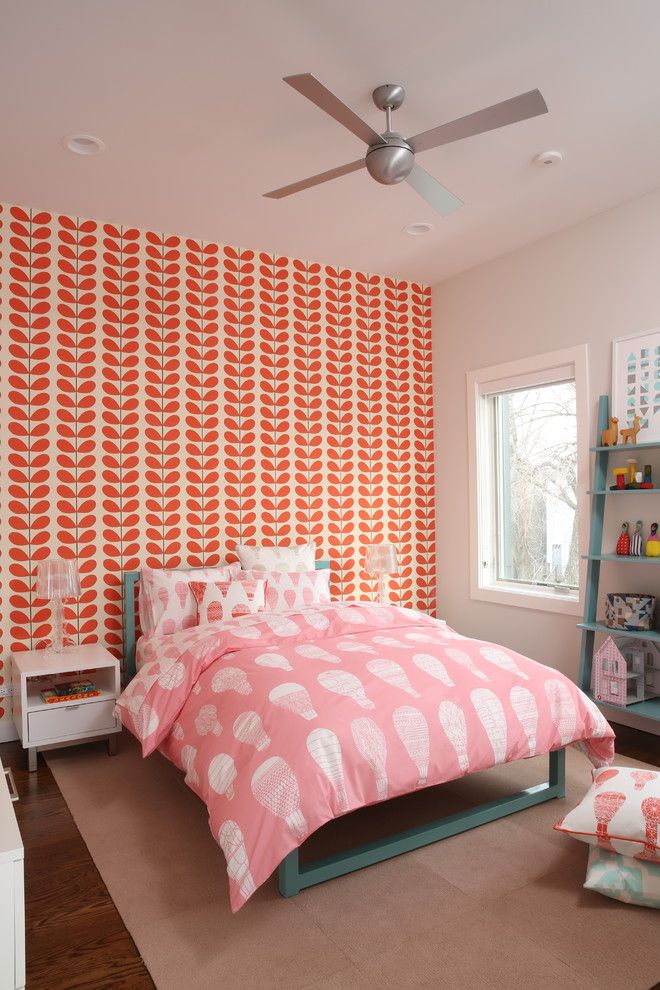
How to decorate a nursery
One of the basic rules for organizing a Montessori children’s room is the use of exclusively natural materials. So, furniture should be purchased wooden (plywood from conifers, alder, maple is suitable, since they are affordable), if you hang curtains, then only from cotton or linen, and the carpet is woven from natural cotton or woolen threads.
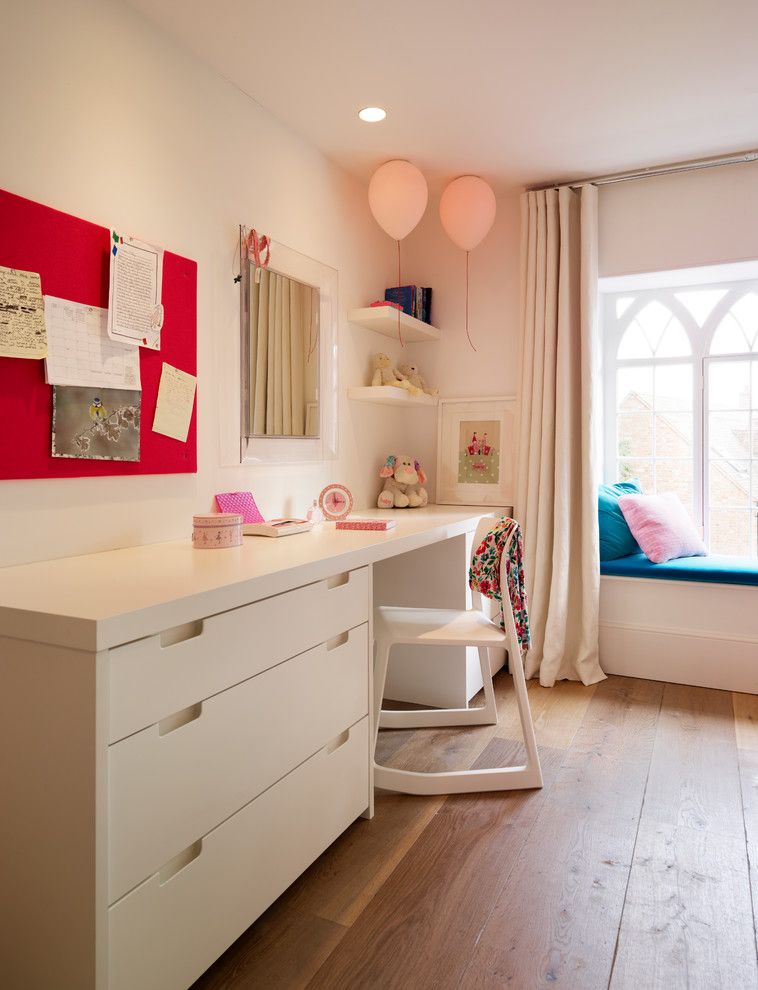
How to decorate a nursery
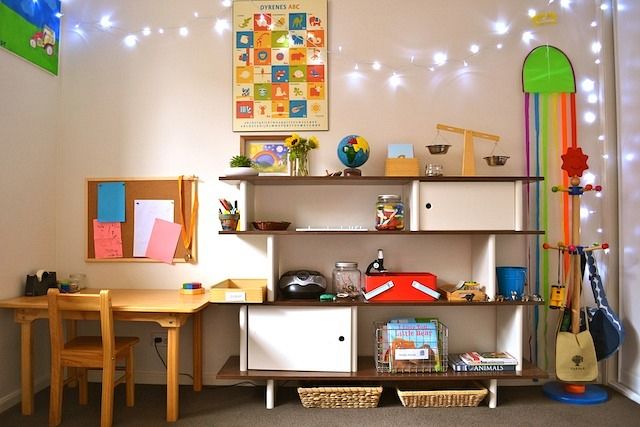
How to decorate a nursery
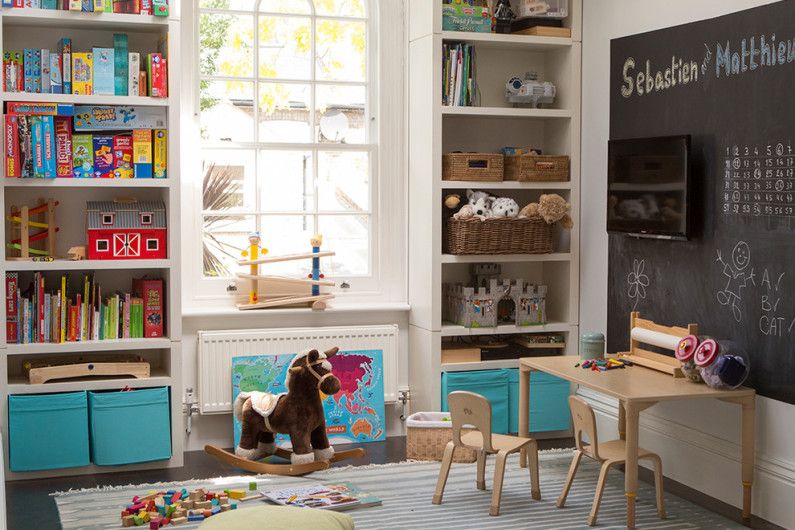
How to decorate a nursery
Creativity zone
The aesthetic design of the nursery is especially important for the baby, because it contributes to the development of good taste and the desire for beauty. It is recommended to decorate the walls with paintings, light but not complicated landscapes, images of animals, birds and insects. Creative materials should always be freely available. You can give your child an easel, make a slate surface for drawing, or highlight a part of the wall with a cleaning surface on which the child can develop their creativity..
Pay attention to which decorative pillows to choose for the nursery. For the smallest, it is better to choose graphic black and white, because this combination is well perceived by children’s eyes, teaches to recognize shapes
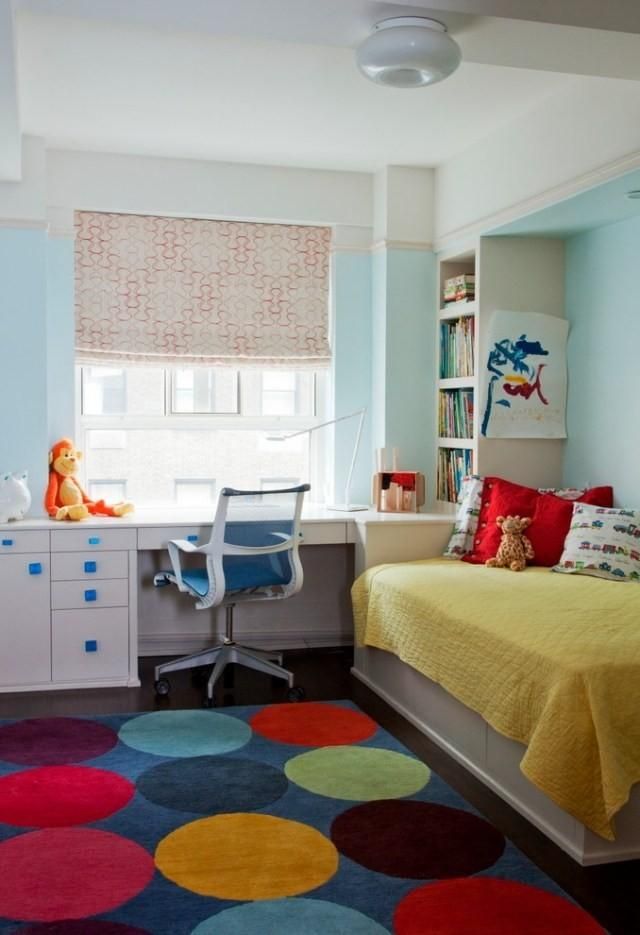
How to decorate a nursery
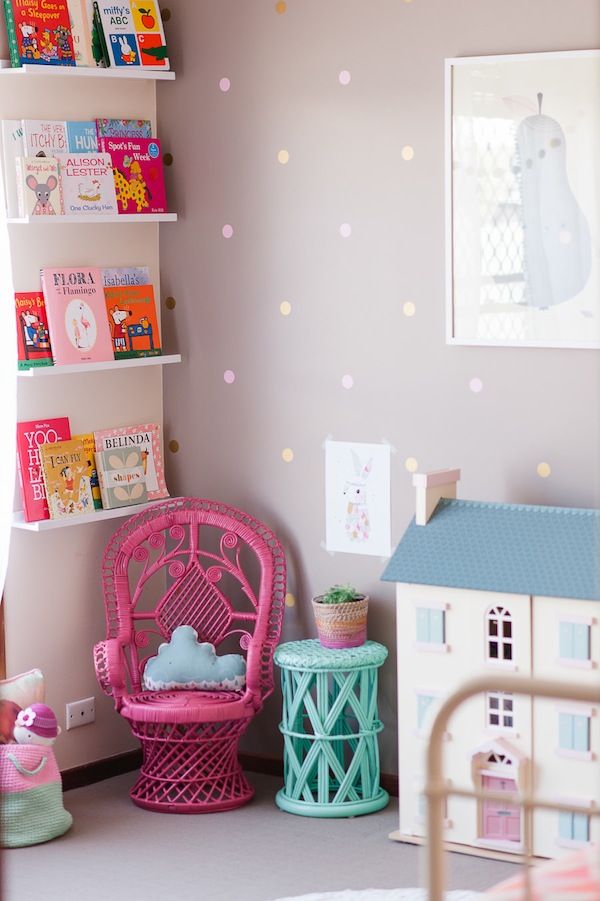
How to decorate a nursery
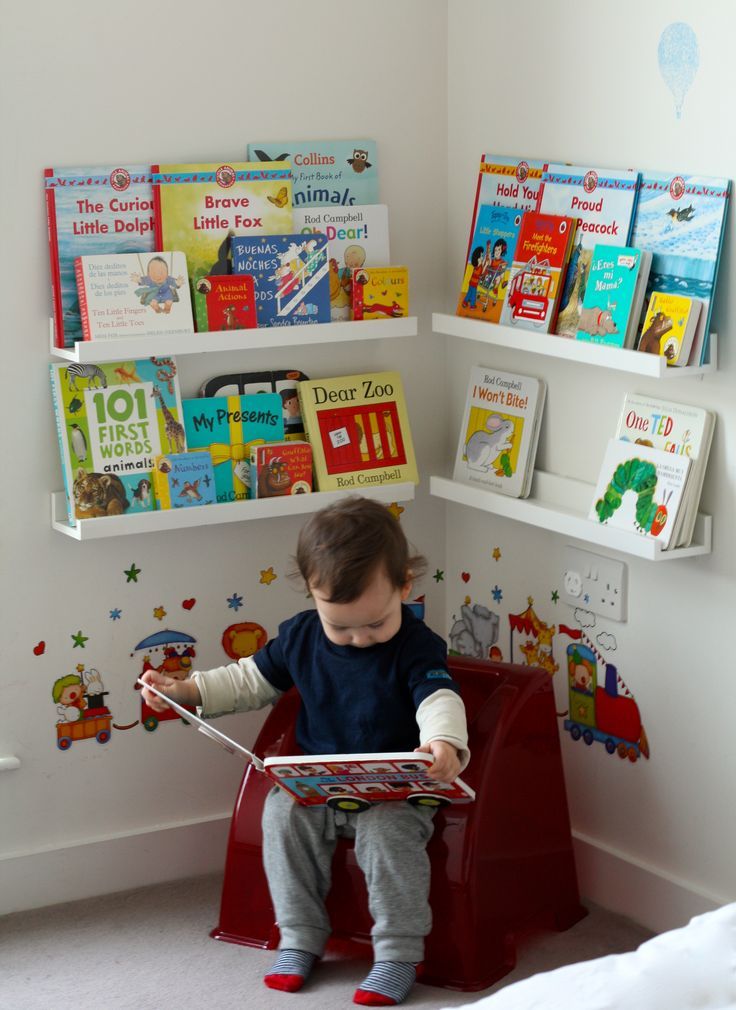
How to decorate a nursery
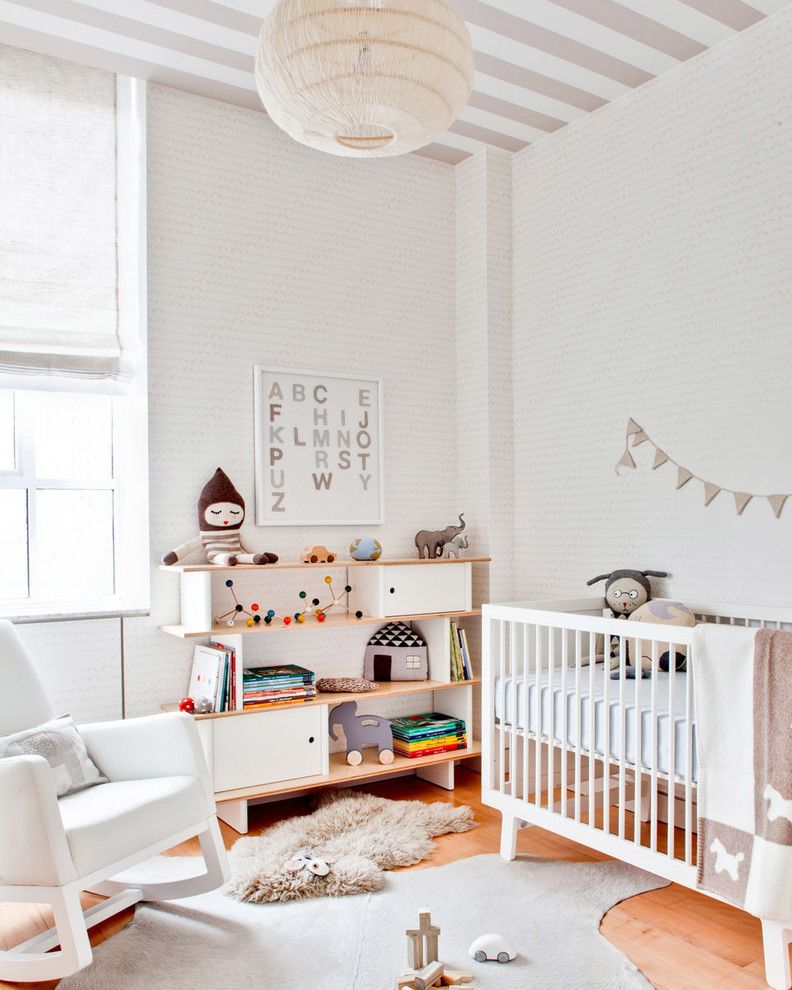
How to decorate a nursery
Feeding place
A quiet and peaceful place to feed your baby is also worth setting up. Here, a mother and child will be able to retire with complete comfort, besides, sitting in a comfortable chair, one of the parents will read books before bedtime, thereby building more trusting and lasting relationships from the very young age of the baby. Above the chair, you can attach a mobile with funny cognitive figures, and next to put a rack or bookcase for books.
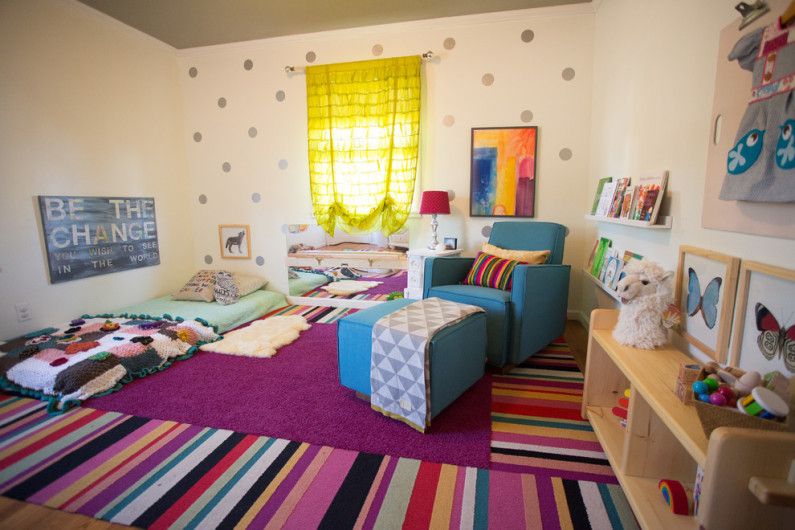
How to decorate a nursery
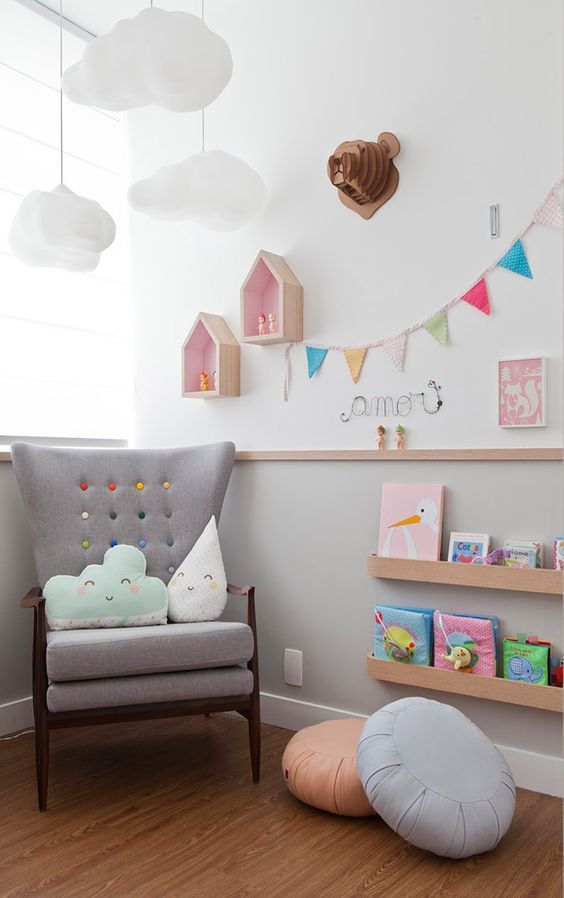
How to decorate a nursery
Your kids are motivated, passionate learners who can reach incredible heights if given enough independence and independence. Support their zeal for independence and exploration of the world around them, support them and create the necessary environment for their improvement.
For help in preparing the material, we thank the interior designer Eva Bassano, Bassano&Sivak design-studio

